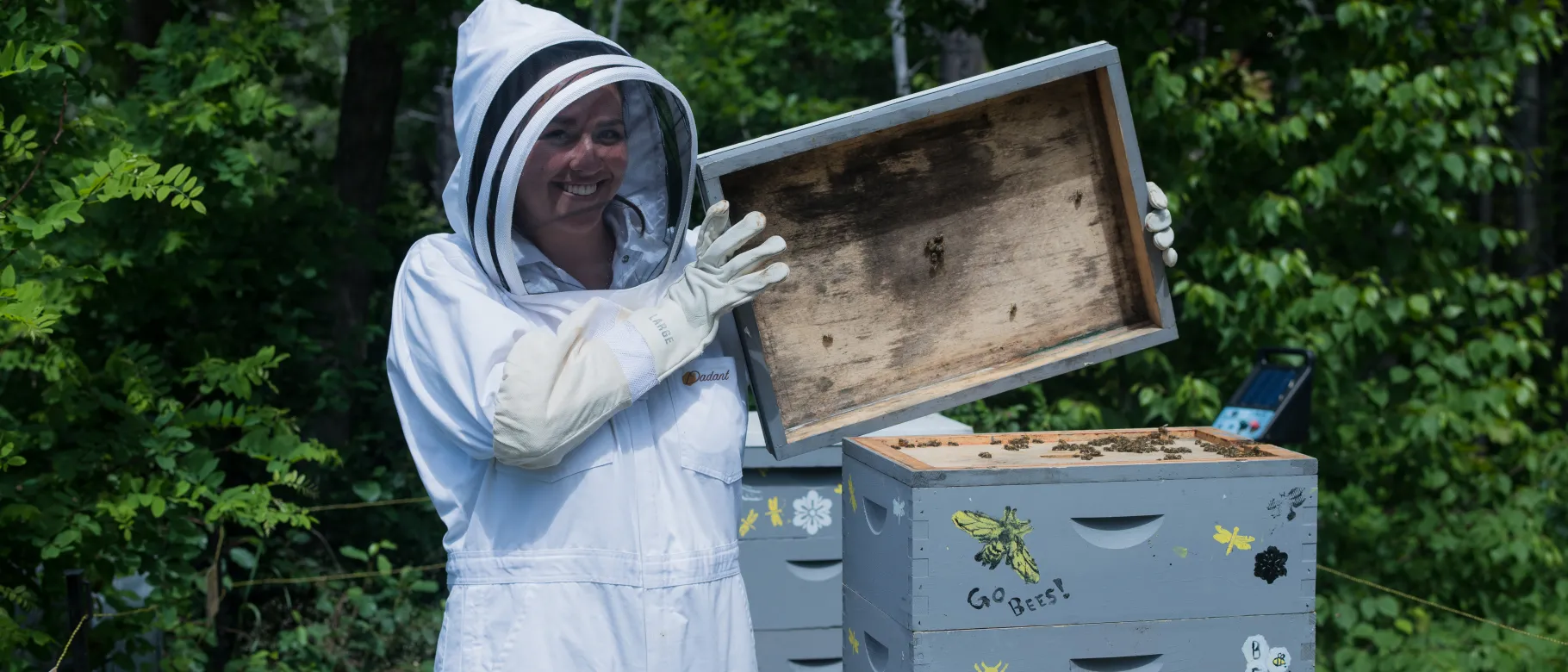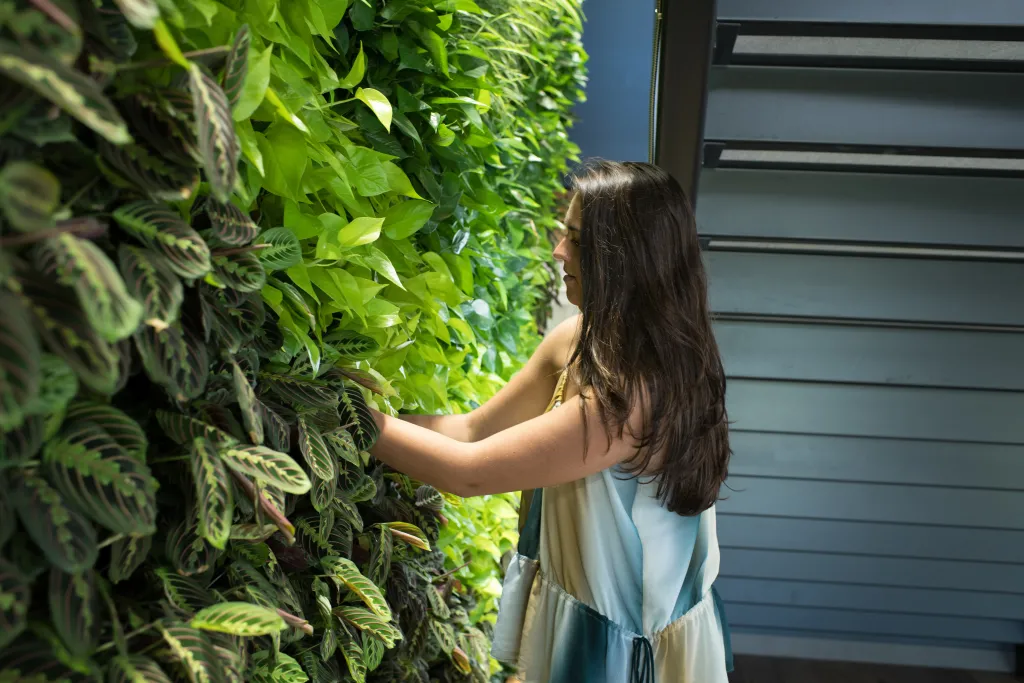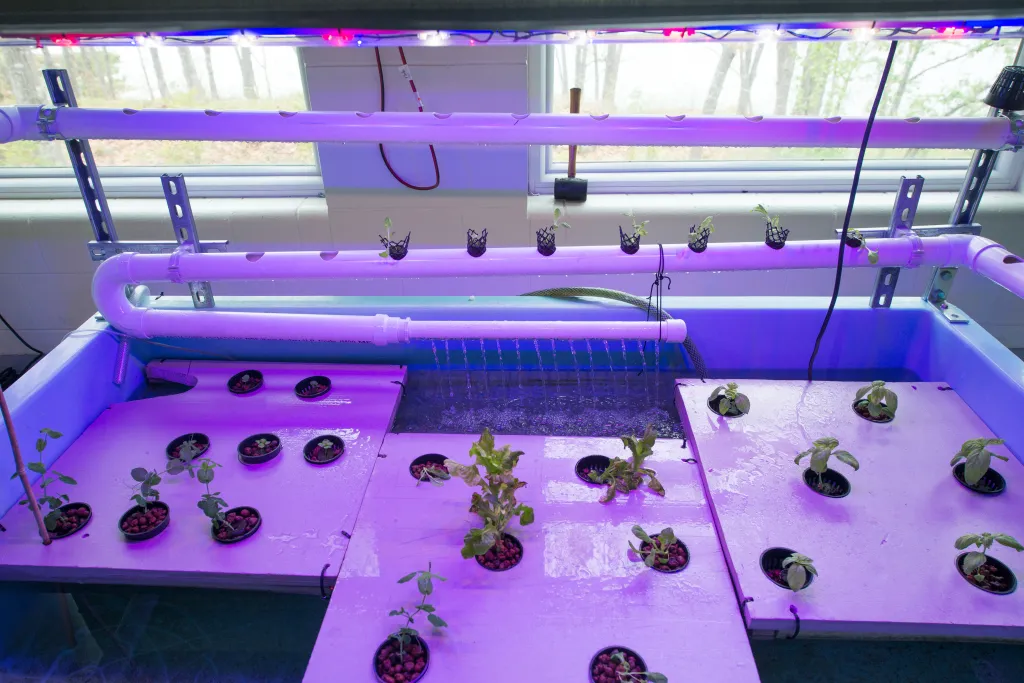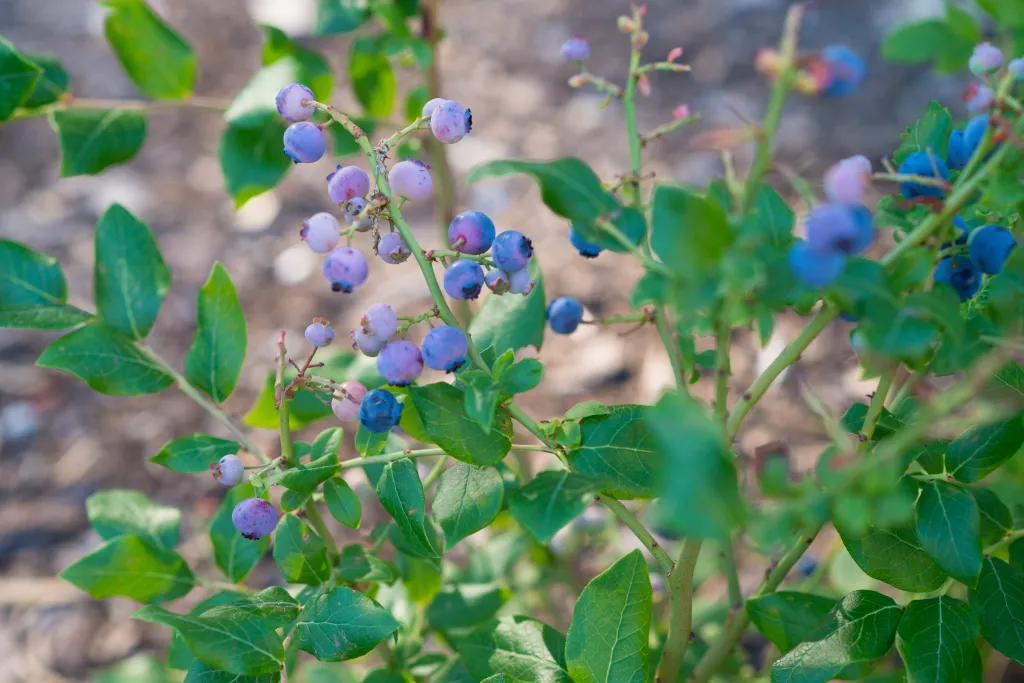What’s the buzz on the Edible Campus Initiative?

Elissa Kane ’19, a double major in Environmental Studies and Business Administration, never envisioned herself wearing beekeeper’s gear at college. “I’m so scared of bees,” she admits.
But her summer internship in UNE’s Office of Sustainability has her doing a lot of things she’s never done before. “It’s something different every day,” she says of her work under Sustainability Coordinator Alethea Cariddi.
As part of her internship, arranged through the College of Arts and Sciences Internship Office, Kane has the honor of tending to two bee hives that were set up on the Biddeford Campus in the spring of 2017 -- the result of the UNE Honey Bee Conservation Club’s efforts to combat the decline of honey bee populations. For obvious reasons, the hives are nestled away on campus; many UNE community members may not even know they exist. But burrowed between the commuter parking lot next to the Student Academic Success Center and the lower residential parking lot, there they sit, each containing their own queen and countless worker bees. After an unsuccessful first year during which the queen of both colonies died, UNE bee enthusiasts are hoping for the production of honey this summer. Kane says that the manner in which the honey will be used has yet to be determined, but there are thoughts of making it available in the dining hall or even selling it in jars as a fundraiser to support the club’s work with the bees.
The bee hive project is one facet of a larger, campus-wide effort to encourage the production of food on UNE property. The Edible Campus Initiative, overseen jointly by Cariddi; Jeri Fox, associate professor and program coordinator for Aquaculture and Aquarium Sciences; and Zachary Miller-Hope, assistant lecturer in the Departments of Biology and Marine Sciences, also incorporates a community garden (tended by UNE students and employees), a blueberry garden (offering two native species of highbush blueberries), and a center for aquaponics (a food production system that combines traditional aquaculture with hydroponics, using fish waste as fertilizer for growing vegetables). “The Edible Campus Initiative illustrates our ability to produce food in marginal spaces,” says Cariddi. “And it provides a multidisciplinary learning opportunity to students and community members as they learn about sustainable food production methods.”
Some of the food produced by the aquaponics center will soon be used in an exciting, new way on campus: as part of the living wall in Ripich Commons. The living wall is currently a lush, green, vertical carpet that welcomes visitors to the Commons. Comprised of ornamental plants, including neon and jade pothos, variegated spider plants, and others, it is tantalizing to the eye but not the taste buds. Kane, when not braving the bee hives or working on a multitude of other sustainability projects, is working to transform the lower portion of the wall into a -- not just visual, but edible -- focal point of the first floor entryway. “We will be replacing the ornamentals under the stairwell with eight different edible plants,” she explains, listing romaine lettuce, bok choy, Swiss chard, kale, basil, oregano, parsley and mint.
Cariddi says that, thus far, all of the projects that are a part of the Edible Campus Initiative have stemmed from student interest and action. “We go where there is energy,” she says, noting that additional edible projects are possible, depending on student initiative.
But even with just the current projects in place, there are more munchies on the grounds of UNE than most people realize. Summer, of course, is peak season for all components of the Edible Campus Initiative, so it may be far easier than you ever imagined to – quite literally – grab a bite to eat on campus.
To learn more about the Office of Sustainability, visit www.une.edu/sustainability
To apply, visit www.une.edu/admissions


